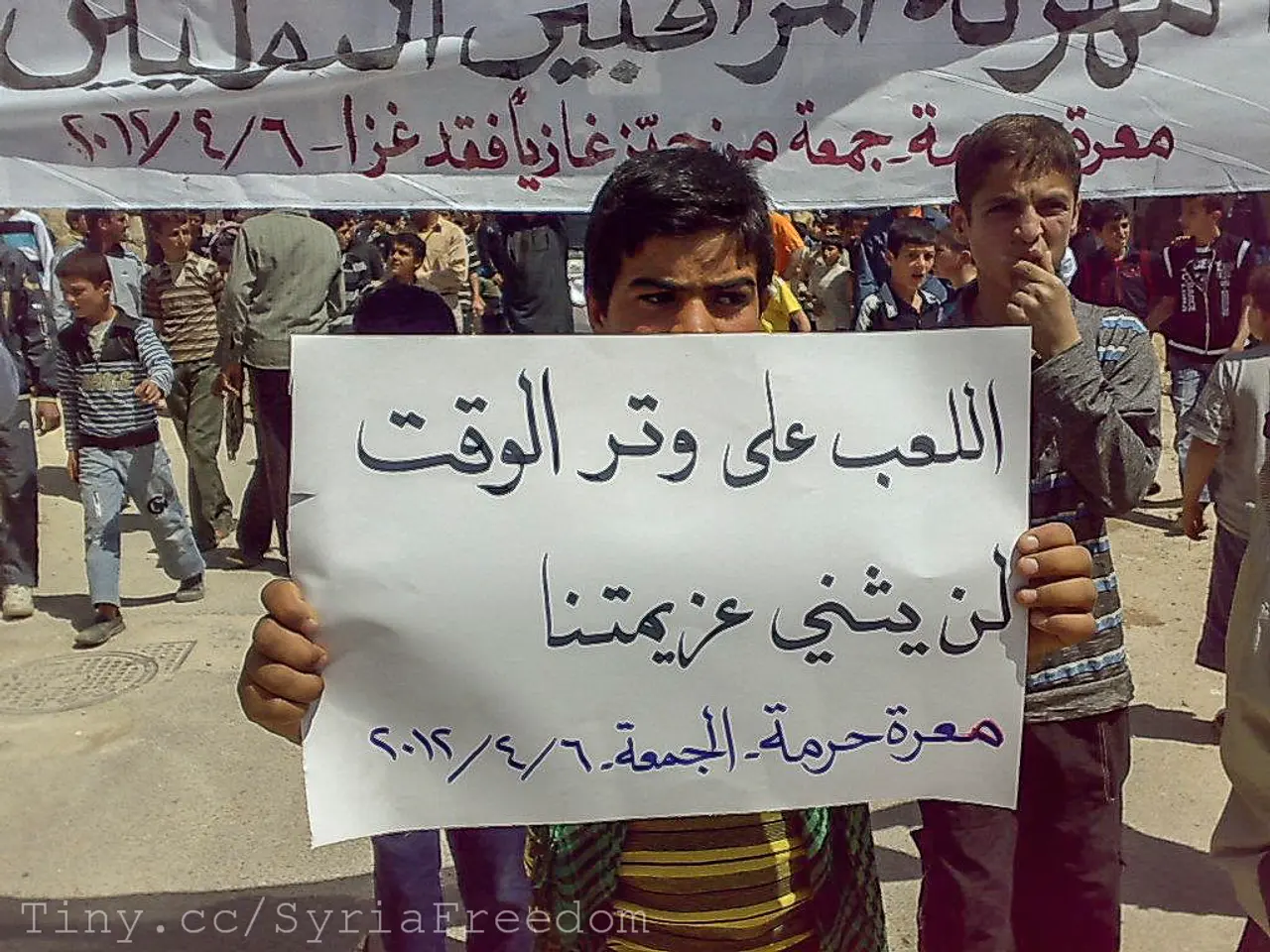Demonstration Opposed to Immigration Policy Held at Federal Police Headquarters
In Potsdam, Germany, activists staged a protest on Monday morning at the construction site of the new federal police headquarters. Around 90 musicians from the group "Lebenslaute" participated in the occupation, playing music with banners during the protest.
The occupation was in protest against Germany's asylum policy and repatriations at the country's borders. This controversy has been ongoing for some time, with recent developments centering on the government's renewed deportations to countries like Afghanistan, despite ongoing human rights concerns there.
Germany has resumed deportations of Afghan nationals who have rejected asylum claims and criminal records. These deportations are conducted under police supervision and involve negotiations with the Taliban regime, which the government does not officially recognize. This policy shift, framed as a "repatriation offensive" by the new conservative-led government, has faced backlash due to Afghanistan's ongoing instability and reported human rights abuses, raising concerns over the safety of returnees.
The protest in Potsdam also addressed the suspension of humanitarian visa programs for Afghans, a move that leaves thousands in precarious situations and is connected to the broader tougher immigration stance. Additionally, plans to create a dedicated deportation terminal at Munich Airport to expedite removals have spurred criticism from politicians and activists.
The activists involved in the occupation of the federal police construction site in Potsdam face charges of trespassing and violations of the assembly law. The federal police have stated that a group gained unauthorized access to the construction site.
This multifaceted debate surfaces at the intersection of migration control, international diplomacy, human rights, and domestic policy, generating ongoing public and political scrutiny in Germany. Critics argue that deporting to Afghanistan endangers individuals given ongoing instability and abuses under the Taliban. There are also political dilemmas, such as Germany collaborating with the Taliban for deportations despite not officially recognizing them, which prompts debate over legitimizing a regime with a poor human rights record. The halt of voluntary humanitarian admissions worsens the plight of vulnerable Afghans awaiting safe passage to Germany, and the introduction of a deportation terminal at Munich Airport is viewed by some as institutionalizing expedited removals in a controversial manner.
- The protest at the federal police construction site in Potsdam, led by the musicians group "Lebenslaute," is part of a larger movement against Germany's politics on general-news issues like asylum policy, repatriations, and humanitarian visa programs for Afghans.
- The controversy over Germany's deportation policy, particularly the resumption of deportations to Afghanistan, has confirmed its intersection with international diplomacy, human rights, and domestic policy, sparking debates on the safety of returnees and the legitimacy of collaborating with the Taliban.








